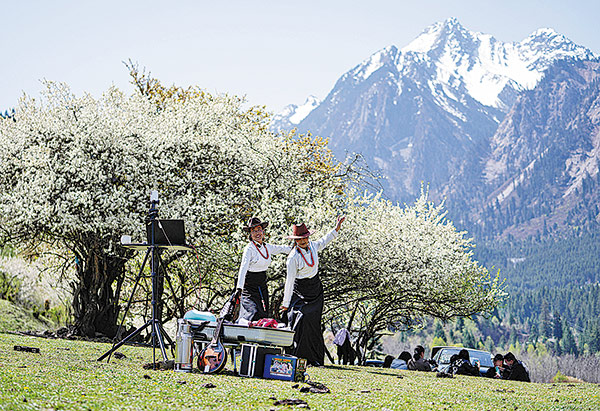

As many people's travel plans were disrupted by COVID-19, "cloud tourism" has gained in popularity in China.
"Cloud tourism" refers to a form of travel that depends on advanced technologies such as 5G and virtual reality. These technologies enable people to have immersive sightseeing experiences without time and spatial constraints.
Data from the short video platform TikTok showed that 250 million people took a virtual tour via livestream during the five-day May Day Holiday earlier this month.
Among the most popular channels is Taishan Juanjie that livestreamed the sunrise at the top of Taishan Mountain in East China's Shandong province on May 1, attracting 330,000 views.
Amid the pandemic outbreak, virtual tours received wide recognition from viewers, said China Youth Daily, which conducted a survey of 2,085 people on cloud tourism.
According to the survey results, 74.8 percent of the respondents said they were willing to take a virtual tour and 59.7 percent said they had a good online traveling experience.
"The online exhibitions allow me to pick up, rotate and magnify virtual exhibits. I can study them in detail at any time," said Wang Bo, a museum enthusiast in Beijing.
"They also save me from large crowds and long queues, which make me annoyed when visiting museums in person," he said.
In addition to not lining up, "cloud tourism" helps cut traveling expenses and offers tourists an extensive list of scenic spots. The most favored destinations of virtual tours are natural attractions, followed by historic sites, Red tourism spots, museums and theme parks, according to the survey.
"Some natural wonders can only be watched at specific times or with professional equipment. Virtual tourism fulfills people's desire for enjoying unmissable scenery," said Liu Simin, deputy director of the tourism chapter of the Chinese Society for Futures Studies.